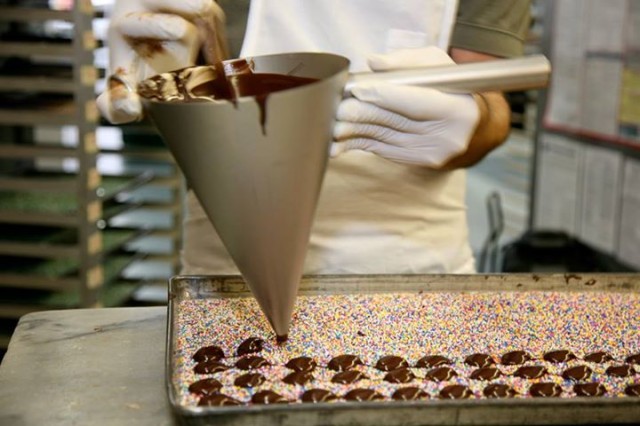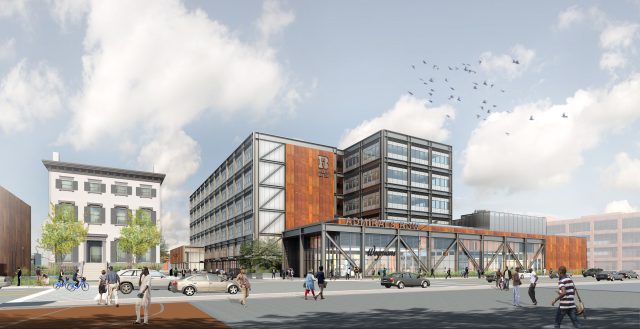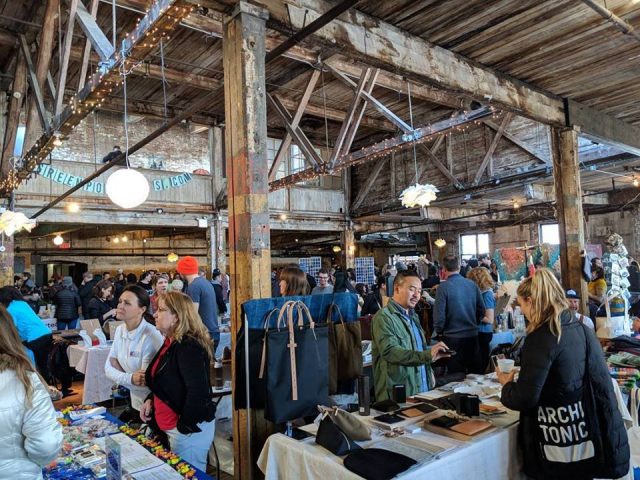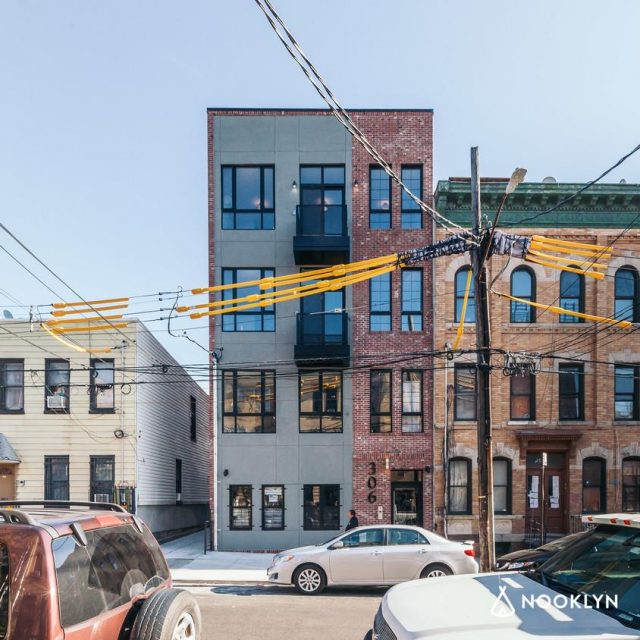
Brooklyn’s been going through a lot of changes–some cool, some lousy–but we’ve always been able to take comfort in the fact that chocolate will always be there for us, right? But what if chocolate is part of these changes? Et tu, cocoa? That’s apparently what’s been going down in Sunset Park since Li-Lac Chocolates, a 100-year-old New York City chocolate factory, moved in and was accused of gentrifying the place.
The Times followed the chocolate factory and storefront as they opened in Industry City and faced some pretty staunch opposition from local organizers who blasted the shop as a tool of gentrification. What makes Li-Lac a bit atypical, though, is the fact that they’re not some white transplant’s artisanal fantasy: the factory has been in New York for close to a century, and most of its current co-owners are immigrants who have been in the city for a while.
Li-Lac was in West Village for 81 years until they got priced out ten years ago. They then moved their manufacturing to southern Sunset Park and opened another storefront in West Village, and have since moved into the new Industry City spot. It’s hard not to sympathize with a chocolate shop that itself got gentrified out of a neighborhood it spent generations in, and we’re not just saying that so we can get some free samples please. It’s also notable that the owners themselves have said they’ve had to resist moving out to Pennsylvania, where a lot of chocolate manufacturers have ended up. The city’s lost thousands of manufacturing jobs every year over the last couple decades, and its made being working class in this city pretty tough, which is why the city’s been trying to incentivize businesses to keep production here.
It feels like there’s a contradictory tension when a manufacturing neighborhood sees a new manufacturer as a threat, but organizers have a point in emphasizing class over New York authenticity here. This is more a story of the city policy and shady development tactics that leave established small businesses stranded and working class neighborhoods vulnerable, but the only players we see here are immigrant business owners who say they don’t know what they did wrong and a blue collar, immigrant neighborhood facing existential an threat.
This story of displaced businesses shaking up their new neighborhoods is one we’ll be hearing a lot more about, especially with places like Williamsburg’s Trash Bar or Brooklyn Heights Cinema getting priced out and searching for spots to resettle. We can only hope chocolate will always be there for us.
Leave a Reply



